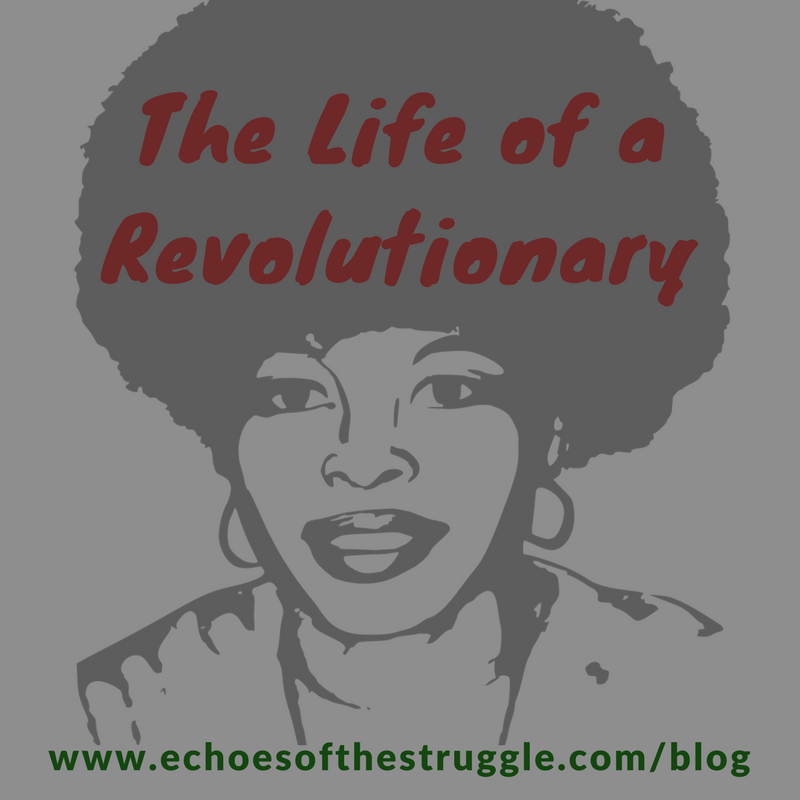The Life of a Revolutionary
- Justin Willis
- May 16, 2018
- 4 min read

With the much-needed resurgence of acknowledging exceptional women from our past and present throughout the month of March, I wonder if there is an easier, simpler, and more accessible way to become a revolutionary. Clearly, there is no such thing. But revisiting the life of Assata Shakur would probably be one of the closest attempts to an easy path. In the current times of persistent racial injustice, the world could benefit from black women who are, indeed, revolutionary — meaning women whose tireless efforts contributed to progressive change that would benefit not only herself and others who were disenfranchised, but also those who have not yet realized that they may be plagued by victimhood. I believe that Assata Shakur would attest to dealing with adversaries, transforming from a product of her circumstances to an exceptional woman, and embracing freedom as the key essentials to becoming a revolutionary.
The early stages of the life of Assata Shakur (formerly known as JoAnne Chesimard) proves that, in order to be a revolutionary, one must learn how to deal with adversaries. On July 16, 1947, the young JoAnne Chesimard was born into a world that hated her ethnicity, her gender, and essentially every fiber of her being. Growing up, she quickly realised that systemic racism was her adversary. It was systemic racism that allowed white Americans to advance economically while at the same time criminalizing black Americans and other ethnic groups by plaguing their neighborhoods with poor living conditions, drugs, and unwarranted police brutality. However, how did she ever know what her true adversary was if laws are set in place to justify the treatment, or in her case, mistreatment of blacks in America? Knowing her enemy was half the battle.
The other half of the battle lied in the fact that she refused to remain a victim of injustice. She sought change. JoAnne would utilize weapons that every human being is given to level the playing field. As a result of delving into literature by James Baldwin, JoAnne was reminded that she was compelled to find solutions to living in a nation that, at the time, did not have the best interests of her people at hand. Baldwin’s literature was reaffirming for her. The reaffirmation ignited yet another weapon to use to fight injustice. This weapon was self expression.
Throughout Assata: an Autobiography, she graces the chapters with stanzas that illustrate her emotions during pivotal moments throughout her life. Lastly, acquiring a completely new name was probably the most notable change that she underwent. For some, changing your legal name may simply be seen as a new label; but she had come to the conclusion that her name did not resemble the current state of mind — her black consciousness. After joining the Black Panther Party, she would then be known as Assata Olugbala Shakur. This name would resemble her new African life. Assata meaning “She who struggles,” Olugbala meaning “for the people,” and finally Shakur meaning “the thankful” (Shakur, 186).
What is probably most notable about her experiences is her becoming part of the Black Panther Party, an organization that used their resources, knowledge, and like-minded vision to provide for their people. Assata’s vision and the Black Panther Party’s vision became one and the same. To be a revolutionary, one must understand what the endgame ise. To Assata and many other Black Panthers, economic freedom was the goal — not only for them, but for their children’s children.
The theme of freedom it has forced me to reconsider what freedom is exactly. In my own recollection of American History, I am reminded that black Americans were not free following the Emancipation Proclamation. Were black Americans slaves afterwards? No. However, there were little to no resources set in place for former slaves to build new lives. As a matter of fact, Assata revisits the words of Abraham Lincoln during his three-year struggle of how to deal with blacks in America from 1862 to 1865. I won’t give it all away, but Abraham Lincoln was not all for black American equality. However, that’s the beauty of what freedom meant to Assata Shakur. Freedom was not simply having the physical chains removed. It was not even about the chains. Freedom came when you were able to walk in your purpose in spite of those who work tirelessly to keep you from it. Based on this idea of freedom, she was free even in prison. And believe me, she was locked up for a minute in this book.
I love this quote that she wrote. Its says “Nobody in the world, nobody in history, has ever gotten their freedom by appealing to the moral sense of the people who were oppressing them.”
Ultimately, her life is a quintessential example of what it means to face your adversaries, embrace internal growth and change, and finally strive for freedom to pursue life in ways that had never been considered, witnessed, or dreamt about. Her life and legacy continues to inspire us to be revolutionaries.
To keep up with Justin, subscribe to his youtube channel, The Black Curriculum, here.































Comments